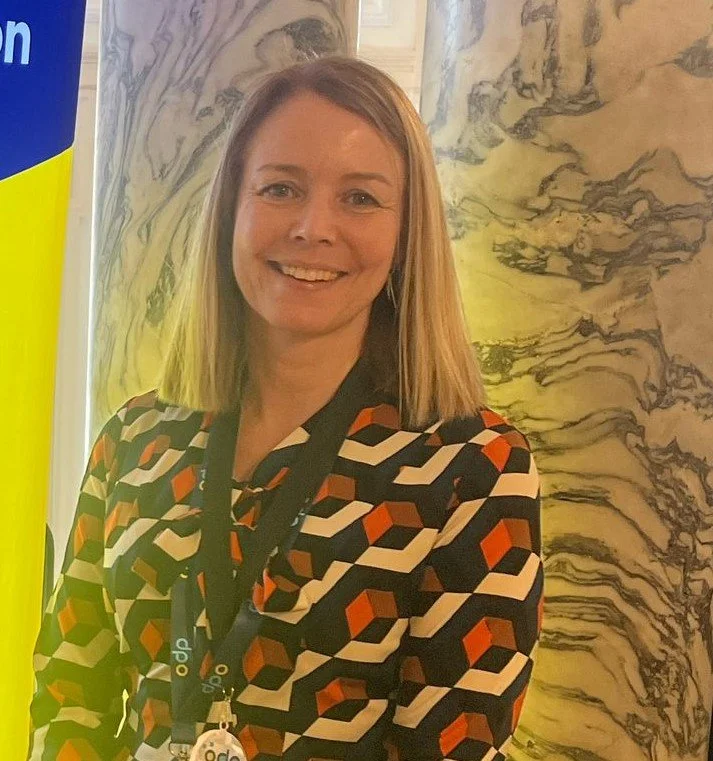
Our Team
Our co-directors
Dr Emma Morris
In my work I am always interested in relationships; the relationship a person has with themselves, with their family and friends, with me, with organisations and institutions, with their community, with society. I think that it is through exploring and understanding these relationships, sometimes directly, sometimes indirectly, that healing and growth can happen. I have a deep respect for evidence based practice, whilst recognising that one size doesn’t fit all and that there is sometimes a need to integrate approaches. I want people (including children) to feel that we are working in collaboration and that they have an active role in their recovery. I prioritise helping people to feel safe, respected and like they can bring any thought, feeling, experience or memory without fear of judgement or of being overwhelmed.
I am a HCPC and BPS registered Consultant Clinical Psychologist with 25 years of experience working both the NHS and the charity sector. I specialise in work with emotion regulation, trauma, parenting and relationship difficulties (including parental conflict). I worked for 10 years with the specialist Family Trauma team at the Anna Freud Centre (child and family mental health charity) and for 15 years prior to that in the NHS. I am skilled in different therapeutic models including mentalization-based therapy (MBT), systemic family therapy, multi-family therapy (MFT), attachment-based therapy, cognitive behavioural therapy (CBT), Acceptance and Commitment Therapy (ACT) and Eye Movement Desensitisation & Reprocessing (EMDR). I also have 20 years of experience as an expert witness to the Family Court.
I have held senior leadership roles within the NHS and the charity sector and secured and led on grant-funded projects. I am interested in how we innovate therapies to improve health equity and help children and young people more effectively. I have been involved with research and the development of multi-family therapy, mentalisation based interventions and interventions for parental conflict. I have published multiple peer reviewed research articles, co-authored two books (High Conflict Parenting Post Separation: The making and breaking of family ties; Systemic Multi-Family Therapy) and co-edited another (Working with Developmental Trauma: A casebook of Mentalization-Based Treatment for children and their families)
I regularly provide teaching, training, consultation and supervision on a broad range of topics including multi-family therapy, mentalization-based therapy for children young people and families, reducing the impact of parental conflict on children, and the assessment of parenting, across clinical, organisational and academic settings, both in the UK and internationally. I am also founder of The Multi-Family Project
Dr Claire Arnold
I am a Consultant Clinical Psychologist, registered with the Health Care Professionals Council, the regulatory body for Clinical Psychologists working in the UK.
As a clinician, I priorities working collaboratively, ensuring people feel safe and empowered within a positive and equitable therapeutic relationship. Although I am a clinical 'expert' within the field of trauma, clients are the 'experts' of their lives; their own experiences, beliefs, and values. Understanding both areas of expertise is important for any post-traumatic growth.
Since completing my doctorate in clinical psychology in 2005, it has been a privilege to work clinically as a trauma specialist within a range of different settings. This primarily has been in the NHS, in both generic and specialist trauma services, as well as charitable organisations, both in the UK and overseas. Within leadership, training and strategic, policy development roles, I have worked in partnership with a range of multi-disciplinary professionals to develop NHS trauma response pathways and services, including the Grenfell Health and Wellbeing Service. More recently, I have undertaken a clinical lead role at the UK Home Office Asylum Mental Health and Wellbeing team, supporting them to further develop and embed trauma informed practice at a national level.
When working clinically, I draw upon a range of therapeutic trainings including Trauma Focused Cognitive Behaviour Therapy (CBT), Eye Movement Desensitisation & Reprocessing (EMDR), Narrative Exposure Therapy (NET), Acceptance & Commitment Therapy (ACT), Compassion-Focused Therapy (CFT) and Systemic approaches. I work with both children and adults, and have a specialist interest in supporting people from asylum seeking and refugee backgrounds.
I also offer Expert Witness assessments regarding trauma-related psychological issues.
I have many years of offering specialist clinical supervision to a range of professionals, as well as reflective practice to clinicians, people with lived experience and professionals working within trauma exposed organisations, including legal firms and physical health settings.
Our Associates
Dr Jyoti Pooni
Hi, I’m Jyoti, a warm, caring and highly skilled Clinical Psychologist specialising in working with children, young people, parents, and families. I am passionate about working with children and young people to help them understand themselves better, manage their emotional wellbeing and to empower them to communicate their needs to the key people in their lives. My focus is always to build on an individual’s strengths and skills for them to thrive and strive for their best potential as individuals and as a family unit. I value a strong therapeutic relationship to create a robust foundation for working together, which I believe will bring about the most change. I aim to provide a supportive, safe, and non-judgemental therapeutic space tailored to each child/young person and family’s needs to achieve this.
I am a Health and Care Professions Council (HCPC) registered Clinical Psychologist with over 20 years’ experience of working across the NHS, charity sector and in private practice. For the last ten years, I have worked at the Anna Freud as Head of Service for a community team commissioned by an inner city of London Borough Council. I have a wealth of experience offering assessment and therapeutic intervention for children and young people aged 0-25 years alongside their families, school/college, and social care systems in the community, in outpatient clinics and in inpatient services. I specialize in work with emotion regulation such as anxiety, low mood and low self-esteem often in the context of developmental difficulties, parental separation and trauma. I also have many years’ experience offering clinical supervision to both clinical and non-clinical colleagues and consultation and reflective practice spaces for education and social care professionals.
I am skilled at delivering evidence-based interventions whilst also integrating other therapeutic models based on each child and family’s needs. The models I employ in my practice include Cognitive Behavioural Therapy (CBT), Mentalization Based Therapy (MBT), Solution Focused, Narrative and Systemic approaches as well as Attachment based approaches.
When not working at the Trauma Recovery Space, I continue to work for the Anna Freud and have a small private practice in Barnet, North London.
Dr Simone Saidel
I am a Clinical Psychologist who believes there is no one-size-fits-all approach to therapy. Every person is unique, and I see my role as working alongside you to understand your experiences and tailor psychological support to your needs, goals, and preferences. I value collaboration and want people to feel safe, respected, and actively involved in their own recovery. Relationships are central to my work—whether the relationship you have with yourself, with those closest to you, or with the wider systems you are part of.
I have worked in NHS mental health services for over five years, three of which have been dedicated to delivering psychological therapies. During this time, I have supported people from a wide range of ages, backgrounds, and identities, experiencing difficulties including anxiety, depression, phobias, self-harm, suicidal thoughts, psychosis, personality-related difficulties, and relational challenges. Whether you are feeling overwhelmed, stuck, or unsure where to begin, my focus is on helping you make sense of your experiences and finding ways to move forward.
I am accredited with the BABCP and trained in cognitive behavioural therapy (CBT), but I also work integratively. Depending on what feels most helpful, I may draw on approaches such as Cognitive Analytic Therapy (CAT), systemic family therapy, Compassion Focused Therapy (CFT), or Dialectical Behaviour Therapy (DBT). I have experience supporting people with trauma, both directly and indirectly, recognising that trauma rarely exists in isolation. My approach is to work holistically and sensitively, helping people to reconnect with themselves and reclaim a sense of safety, hope, and agency in their lives.
Dr Shreena Ghelani
I am a compassionate and thoughtful Clinical Psychologist, with a passion for helping children, adults and families live more fulfilling lives. Driven to practice in a values led way, I am committed to offering sensitive psychology services and am respectful and considerate of areas of difference and diversity. I am registered with the HCPC and eligible for membership with the British Psychological Society.
After completing a Psychology degree (BA) at Sussex University I went on to pursue my interest in Clinical Psychology and worked in a range of NHS services before completing my Doctorate in Clinical Psychology (DClinPsy) at the University of Plymouth. I also hold intermediate level training in Family and Systemic Psychotherapy.
I have over 15 years experience of working within NHS mental health services and since qualifying, have predominantly worked with children, young people and their parents and carers. However, I enjoy working with people with a range of difficulties, including developmental and complex trauma, relationship difficulties, anxiety and low mood and physical health conditions. I also have extensive experience of working with those with diagnoses of Autism, ADHD and Learning Disability.
When we meet, we can set clear expectations and goals to form a foundation of a safe and containing relationship. My aim is to create a space that is open, non-judgemental for us to explore sensitive and difficult material. Initially, we will take time to understand the difficulties that bring you to seek psychological help and develop an understanding of how these problems have come to be ,and what is maintaining them. From this, we can agree a plan of how to begin working on reducing distress and meeting your goals. When working with children and young people, a mix of individual and family sessions will be planned to meet multiple layers of need.
I have been trained in a number of psychological theories and therapy models, including Systemic and Family psychotherapy, Dyadic Developmental
Psychotherapy (DDP), Non- Violent Resistance (NVR), Eye-Movement Desensitisation and Reprocessing (EMDR), Cognitive Behavioural Therapy (CBT), Compassion Focussed Therapy (CFT) and relational approaches. I may also draw on Cognitive Analytic Therapy and Mindfulness where appropriate.
I have experience working therapeutically with a range of presenting difficulties in both adults and children including low mood and anxiety (including social anxiety, obsessive compulsive disorder, panic attacks, generalised anxiety and health anxiety), PTSD and trauma-related distress (including dissociation, emotion dysregulation and flashbacks), relational and interpersonal difficulties and substance misuse. Many clients I have worked with may be working through issues of identity including gender dysphoria and sexuality. I am experienced working with families, couples and parents and hold expertise in this area. With all clients, we work together, to understand their specific challenges and strengths so as to develop a bespoke plan to reduce distress.
My doctoral research used participatory methods to explore resilience factors for people seeking asylum in the UK.
Working in partnership
We invite clinicians who share our values to join us in growing and developing The Trauma Recovery Space.
We provide our associates with the opportunity to deliver a range of individual and group therapies for those who have experienced or been affected by trauma. As a member of The Trauma Recovery Space Team, you can work out of our London Colney base and will have access to monthly reflective practice groups, specialist supervision and CPD.
We prioritise a team approach, informed by the principles of trauma informed practice. We endeavour to develop a team that offers a place of safety, trust, collaboration, choice, empowerment and cultural humility where we learn from each other. Over time we hope to extend the range of interventions and support that we are able to offer. We welcome contributions and shared knowledge from colleagues and associates, both clinically and as co-trainers.
We also invite organisations who are interested in collaborating and working in partnership to improve provision for those impacted by trauma to get in touch.






